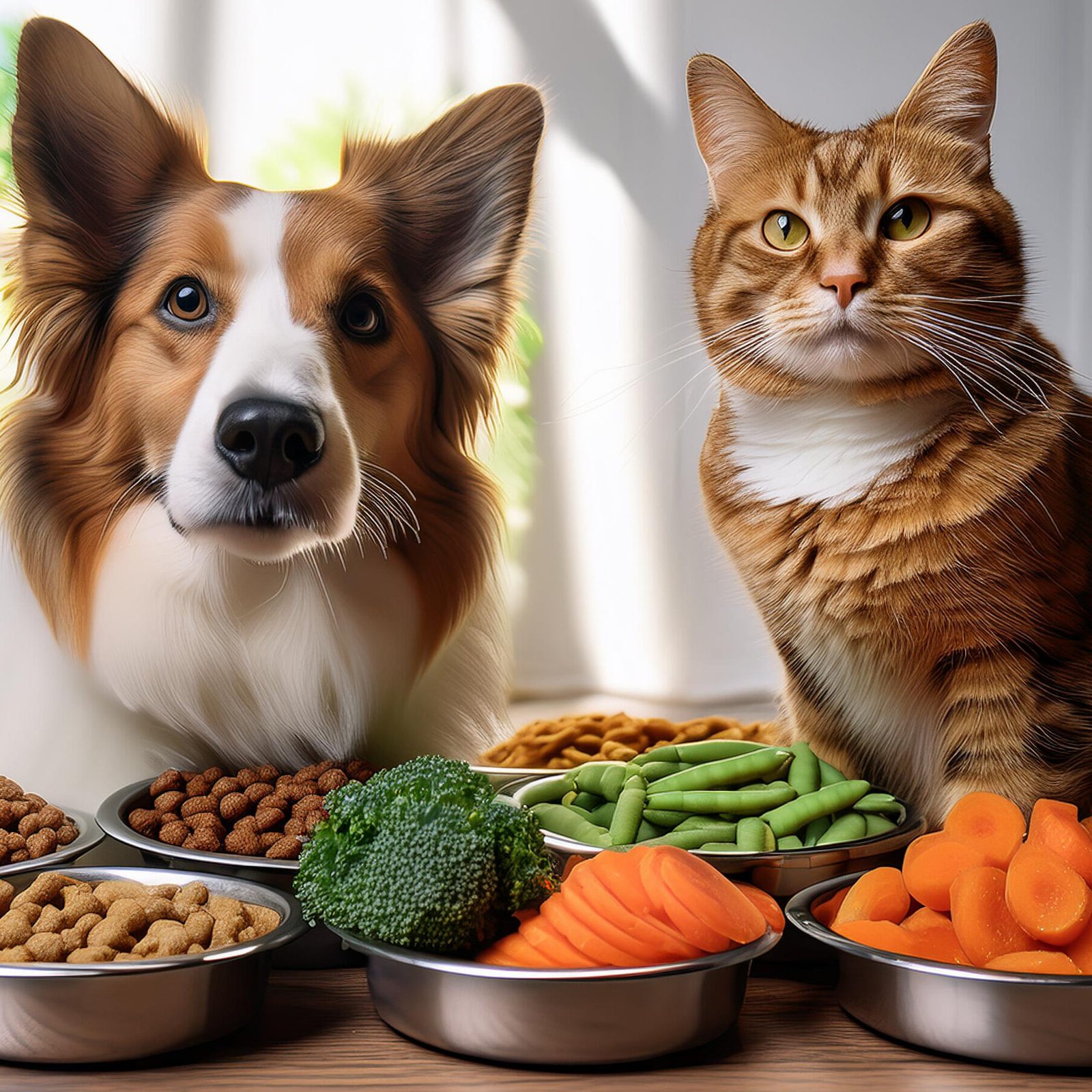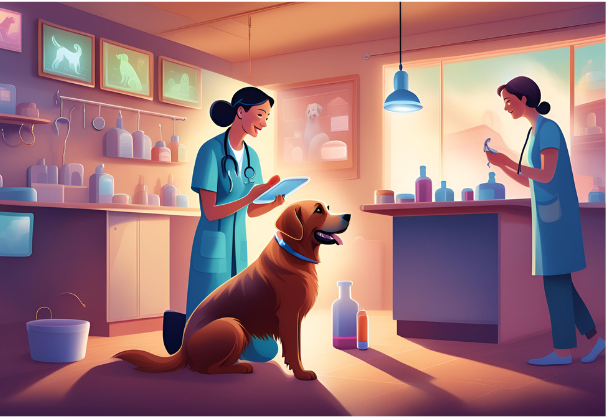INTRODUCTION
Taking care of a pet is a fulfilling experience that fills our lives with so much happiness and company. It does, however, also entail a great deal of responsibility. It’s essential to comprehend the fundamentals of basic pet care if you want to keep your pet happy and healthy. This comprehensive guide on basic pet care will walk you through the necessary procedures and advice to keep your pet in good health. This book caters to both novice pet owners and those seeking to refresh their knowledge on crucial information.
1. Nutrition and Diet
Providing a healthy, balanced diet is one of the cornerstones of primary pet care. Pets require a range of nutrients to keep healthy, just like people do. The kind and quantity of food you feed your pet can have a big impact on their general health.
Choosing the Right Food
The correct food for your pet will depend on a number of criteria, such as breed, age, size, and any particular medical issues. For example, compared to adult cats, puppies and kittens need more protein and calories. A diet higher in fiber and lower in calories may be necessary for senior pets. The ideal food for your pet should always be determined in consultation with your veterinarian.

Feeding Schedule and Portion Control
Setting up a regular feeding routine is essential for the digestive health of your pet. Underfeeding can result in malnutrition, while overfeeding can cause obesity, which can cause a number of health issues. To make sure your pet eats the proper amount of food at each meal, use measuring glasses.
2. Exercise and Physical Activity
Exercise on a regular basis is essential to basic pet care. It gives your pet cerebral stimulation, helps them maintain a healthy weight, and strengthens their cardiovascular system.
Daily Walks and Playtime
For dogs to keep active and release energy, they often need daily walks and playtime. How much and how hard your pet should exercise depends on their breed and age. For example, dogs who are larger and less energetic require less exercise than dogs that are high energy, such as Border Collies. Taking care of this daily exercise is an essential part of primary pet care, customized for the individual demands of each dog.
Interactive Toys and Games
Interactive toys can provide excellent mental and physical activity to both dogs and cats. Toys that encourage chasing, pouncing, and problem-solving can keep your pet interested and busy, lowering the probability of destructive behavior due to boredom. Incorporating such toys into their routine is an important element of primary pet care, helping to keep pets engaged and content.

3. Regular Health Check-ups
Regular medical check-ups are an essential component of primary pet care. These appointments help discover any health issues early and keep your pet up to date on vaccinations and preventative treatments
Vaccinations and Preventative Care
Vaccinations protect your pet against common diseases, and regular preventive treatment helps stave off issues like ticks, fleas, and heartworms. Your veterinarian may provide advice on the most effective preventative care in addition to creating a vaccination plan specifically customized for your pet’s needs. To ensure your pet’s general health and wellbeing, primary pet care must include both vaccinations and preventative treatments.
Dental Health
Although it is frequently overlooked, dental care is an essential part of fundamental pet care. Dental disorders can be avoided with regular brushing and professional cleanings, which can benefit your pet’s general health.
Grooming and Hygiene
For the comfort and health of your pet, it is important that you maintain proper grooming and cleanliness standards. Regular brushing, washing, and nail cutting come under this category.

Bathing and Coat Care
The breed and lifestyle of your pet determine how often they should be showered. Regular brushing reduces matting and helps remove loose fur. It may be necessary to hire a professional groomer for pets with long hair.
Nail Trimming and Ear Cleaning
Regular nail cutting helps avoid overgrown nails, which can be uncomfortable and limit range of motion. Infection prevention also involves cleaning the ears, particularly in breeds with floppy ears.
Hydration Issues
Hydration is a critical element of key pet treatment that typically goes unnoticed. Ensuring your pet dog has constant access to fresh, tidy water is vital for their wellness and well-being.
Importance of Water
Water aids in digestion, nutrient absorption, and preserving body temperature level. Dehydration can cause major wellness concerns, so always check your family pet’s water bowl to ensure it’s full and clean.
Regular Vet Visits
Regular vet exams are a keystone of main pet treatment. These sees aid spot potential wellness concerns early and guarantee your animal remains updated with inoculations and preventative treatments.

Safety and security Precautions
Ensuring your pet dog’s safety and security is a vital part of main pet treatment. This includes creating a secure setting at home and being cautious during outside tasks.
Home Security
Make sure your house is pet-proof by putting away any potentially dangerous items, locking up the trash can, and keeping small objects out of reach. A vital component of primary pet care is creating barriers, such as doors, to limit access to particular areas, therefore protecting your pet and creating a safe environment.
Outside Safety
When outside, always maintain your pet on a chain unless they are in a secure, fenced location. Be aware of potential threats such as web traffic, other pets, and hazardous plants.
CONCLUSION
Taking care of a pet requires commitment and knowledge of fundamental pet care methods. By giving your pet a balanced diet, regular exercise, regular checkups, and proper grooming, you can guarantee their health and wellbeing. Recall that a happy pet is a well-cared-for pet, and your bond will only get stronger with time.
We hope you have found this handbook to be helpful in learning about primary pet care. Please leave a comment below to share your experiences and receive future guidance. We would be delighted to hear from you and carry on the discussion regarding the best ways to provide our beloved pets with primary pet care.
FAQS
What is basic pet care?
Basic pet care involves providing your pet with the essentials for a healthy and happy life. This includes:
- Proper Nutrition: Feeding your pet a balanced diet suitable for their species, age, and health needs.
- Fresh Water: Ensuring clean, fresh water is always available.
- Regular Exercise: Providing daily physical activity to keep your pet fit and mentally stimulated.
- Health Care: Regular vet check-ups, vaccinations, and preventive treatments for parasites.
- Grooming: Keeping your pet clean and well-groomed, including regular brushing and bathing.
- Safe Environment: A safe, comfortable living space free from hazards.
How to take care of a pet?
Taking care of a pet involves meeting their basic needs to ensure they are happy and healthy. Here are some key aspects:
Basic Care Tips for Pets
- Provide Proper Nutrition:
- Feed your pet a balanced diet suitable for their species, age, and health condition.
- Ensure they have access to fresh water at all times.
- Health Care:
- Take your pet for regular veterinary check-ups.
- Keep up with vaccinations and parasite prevention.
- Provide a Safe Environment:
- Ensure your home is safe and free from hazards.
- Provide a comfortable and clean space for them to rest.
- Socialization and Training:
- Socialize your pet with other animals and people to ensure they are well-adjusted.
- Train them using positive reinforcement techniques.

